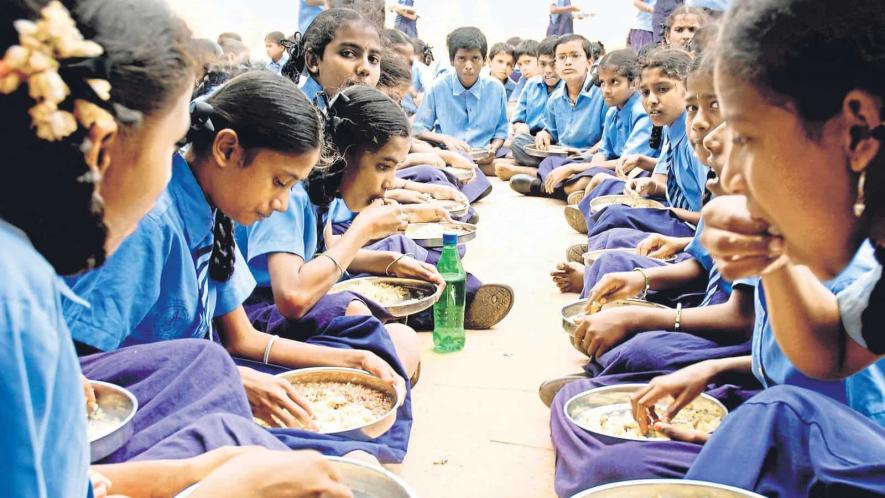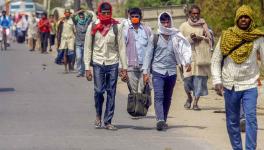Mid-day Meal-Related Food Poisoning Cases at 6 Year Peak: CAG

Representation Image | Courtesy: The Mint
The Hindu reports that as schools re-opened and students returned to the classroom -two years after the pandemic -- serious cases of food poisoning due to the consumption of mid-day meals have resurfaced, and even grown. In the last 90 days alone as many as 120 students suffered from food poisoning across schools in Karnataka, Andhra Pradesh and Bihar.
Last year, in 2022, 979 victims of food poisoning were reported in schools across India, the highest in the last six years. The number declined during the pandemic years as schools were closed. Chart 1 shows the number of food poisoning cases due to the consumption of mid-day meals at schools between 2009 and 2022 (till September 14).
Chart 1: Courtesy / The Hindu
In the last 13 years, data suggest that at least 9,646 such cases of food poisoning were reported. This figure is a conservative estimate based on data from the Integrated Disease Surveillance Programme and news reports. As high as 12% of such victims became ill after consuming mid-day meals in which lizards, rats, snakes and cockroaches were found. Chart 2 shows the number of such victims between 2009 and 2022.
Chart 2: Courtesy / The Hindu
Most of the food poisoning cases by consumption of mid-day meals were recorded in Karnataka (1,524), Odisha (1,327), Telangana (1,092), Bihar (950) and Andhra Pradesh (794). Map 3 shows the State-wise split.
Map 3: Courtesy / The Hindu
Bihar has some shocking instances. In Madhubani district of Bihar, 223 students complained of abdominal pain and giddiness after consuming mid-day meals in 2015. In 2016, 247 students fell ill after eating khichdi as their mid-day meal at a Zila Parishad school in a village in Palghar district, Maharashtra. In Belgaum district of Karnataka, 221 students complained of abdominal pain and nausea after consuming Upma as a part of their mid-day meal in 2017.
Map 4 shows 232 such incidents of food poisoning due to consumption of mid-day meals in schools between 2009 and 2022.
Map 4: Courtesy / The Hindu
Over the past decade, the Comptroller and Auditor General of India has audited several States and thereafter cited many reasons that could lead to low standards of mid-day meal preparation such as poor infrastructure, insufficient inspections, irregular licensing, limited reporting and absence of feedback mechanisms.
Three years back, in 2019, in Madhya Pradesh, the CAG found that the Food Safety and Standards Authority of India did not notify doctors to report food poisoning cases. Worse still, the Food Safety Commissioner did not have information relating to food poisoning cases that occurred during the 2014-19 period. The CAG found that one such missed instance involved 110 food poisoning cases that occurred in August 2014, in a school in the Hoshangabad district. As data were not collected, action was not taken against Food Business Operators (FBOs) responsible for preparing the meal.
Before that, in 2015-16, in Madhya Pradesh, the CAG found that around 14,500 schools did not have a kitchen shed for preparing mid-day meals. In 2016, in Arunachal Pradesh, 40% of the schools did not have a shed. In Chhattisgarh, a CAG survey between FY11 and FY15 found that the mid-day meal was cooked in open areas in unhygienic conditions in 8,932 schools.
The entire issue of quality of food supplied tot he state mid-day meal schemes, those who are contracted through tenders in public schools run by the municipal corporations and the Zilla Parishads has been one fraught with non-transparency and absence of accountability. Standard procedures and requirem, like for instance the one that required food delivered from centralised kitchens to schools should have a minimum temperature of 65°C when it is served, are often not met. In 2018, during a field visit of schools in Valsad district in Gujarat, the CAG observed that the food served by the NGOs was not hot and none of the schools the CAG had visited had the facility to check the temperature. In five districts of the State, the CAG also found that there was over 80% shortfall in inspections of schools carried out by Deputy Collectors due to a shortage of staff.
In another audit conducted in 2014, in Jharkhand, the CAG found that a grievance redressal mechanism was absent in many schools and so, reports about children falling sick were not addressed and rectified.In 2017, in Himachal Pradesh, the CAG found that license and registration certificates were given to 97% and 100% of FBOs, respectively, without inspecting their premises.
Get the latest reports & analysis with people's perspective on Protests, movements & deep analytical videos, discussions of the current affairs in your Telegram app. Subscribe to NewsClick's Telegram channel & get Real-Time updates on stories, as they get published on our website.
























